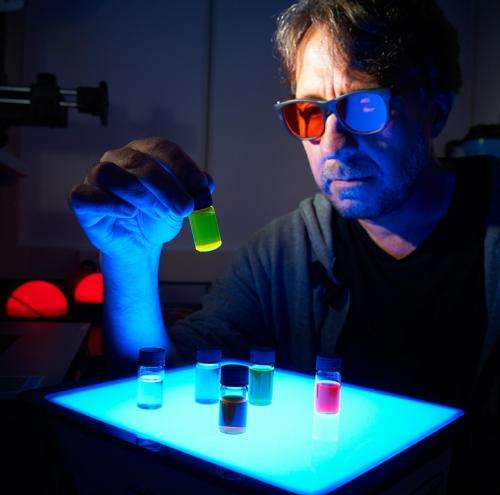Researchers improve diabetes monitoring

A new way of monitoring blood glucose control in diabetes is a step closer to market thanks to a partnership between researchers from the University and leading medical device company glySure Ltd.
In March scientists from Bath showcased a new technique that could be used in blood tests to screen for diabetes and an array of age-related conditions, including Alzheimer's.
By detecting levels of 'glycated proteins' in blood and tissue samples, the researchers from the University's Department of Biology & Biochemistry and Department of Chemistry revealed a method to assess damage caused by sugars in age-related diseases.
With the ageing process, proteins in the body react with sugars in what's known as 'glycation'. This damages how certain proteins work and can lead to inflammation or premature ageing.
Through the new technique, developed at Bath, blood samples are put into a thin gel layer and an electric current applied. The gel then acts like a sieve, sorting proteins present according to their size and shape. By using boronic acid labelled with a fluorescent tag, researchers can distinguish between glycated and unmodified proteins, and can also separate glycated proteins from those that have been glycosylated.
Dr Jean van den Elsen explains: "Glycosylation is a normal process in healthy cells where sugars are attached to proteins using enzymes, whereas 'glycation' is damaging for proteins and cells.
"This method allows scientists to identify signature profiles of glycated proteins linked to particular diabetic conditions. In the future the same method could be applied to new technologies to screen for diseases like Alzheimer's."
Professor Tony James added: "We are very excited about working with glySure Ltd on this very exciting project which will take our lab-based research a step closer to helping diagnose and treat people with conditions such as diabetes and Alzheimer's disease."
glySure's Barry Crane continued: "glySure Ltd is very happy to be working with the University of Bath on this exciting cost share project. The results of which will help in the design of the next generation of medical sensors for the continuous measurement of glucose in Intensive Care Units."


















